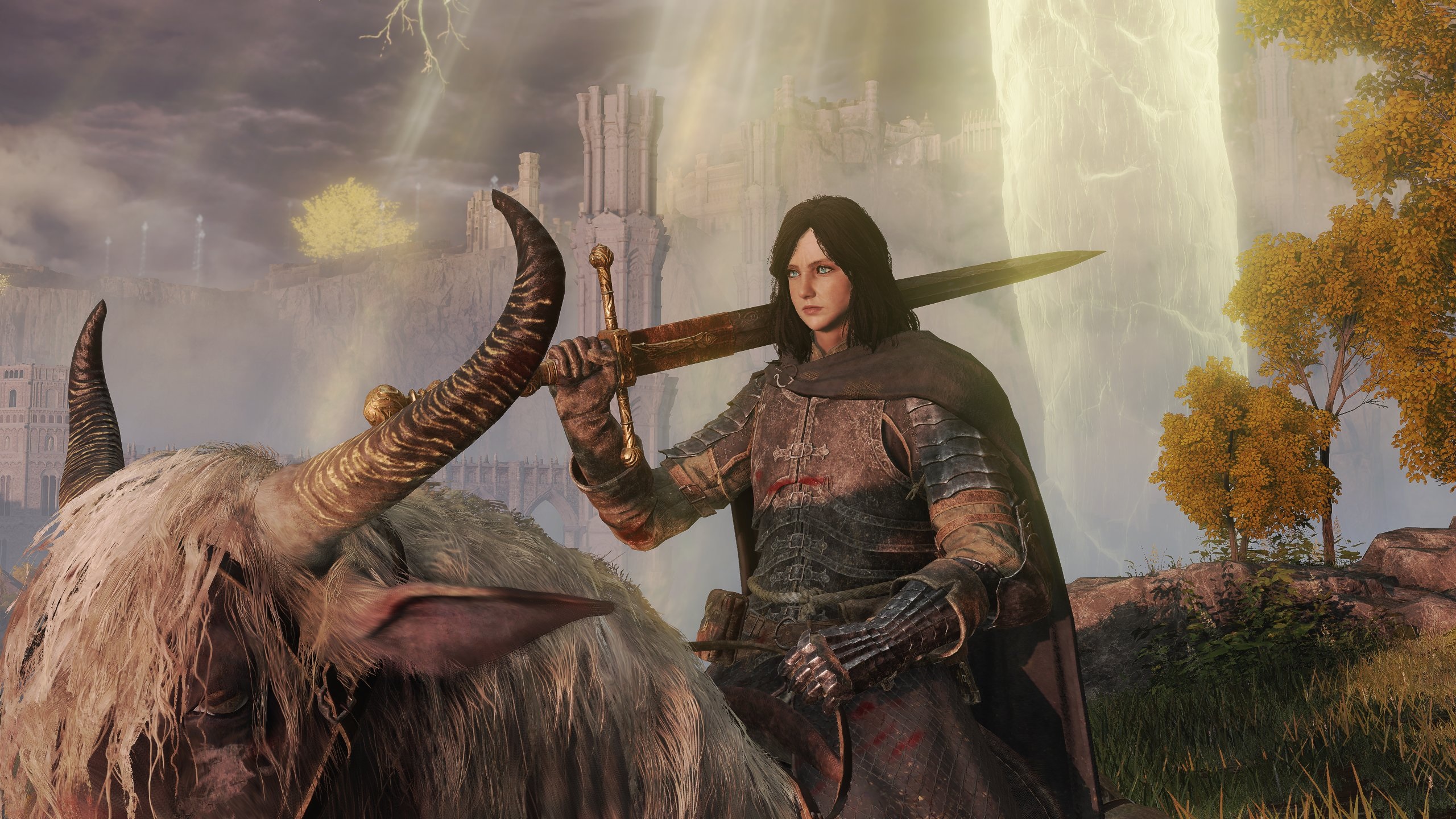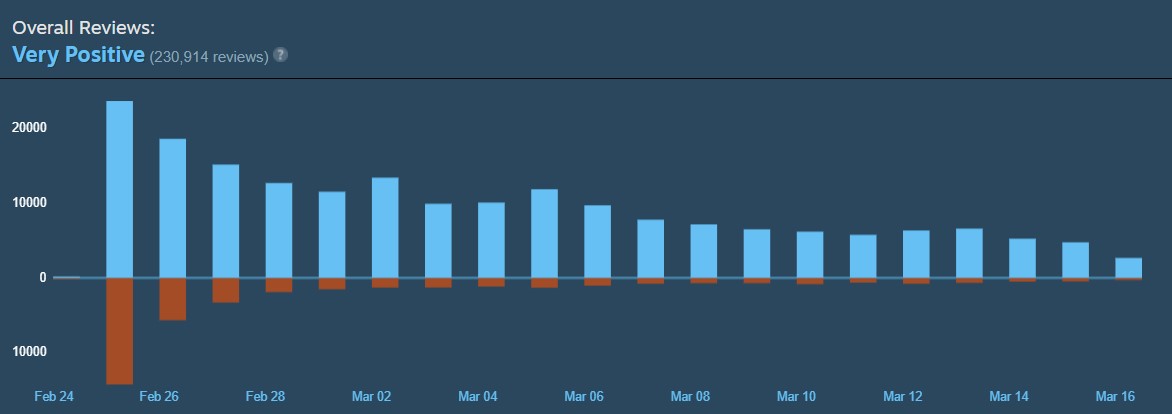Elden Ring is a reminder that frame rate isn't everything
PC gamers cherish smooth visual performance. What happens when an incredible game doesn't deliver it?

The biggest PC game of 2022 has a major technical shortcoming: it's capped at 60 fps.
Normally I'd say that putting a ceiling on frame rate is unacceptable for a modern blockbuster. It's painful to not point the full power of my RTX 3080 and my 3440x1440, 144Hz display at this terrific game. It erases one of the greatest differences between us and those playing on consoles, though my friends on PlayStation tell me that apparently the only way to reach a stable 60 fps in Elden Ring is to run the PS4 Pro version on PS5.
But three weeks and 12 million copies later, this unacceptable frame rate sin has been accepted. Initial complaints about performance have been drowned out by enthusiastic, overflowing praise. What's it mean that we agonize over frame rate (to the extent that whole YouTube channels are dedicated to interrogating it), but in the face of a great game, it doesn't matter?
Elden Ring's technical issues run deeper than a frame rate limit, with a menu of video options that falls short of what most PC gamers would consider standard. The notable omissions: no support for ultrawide resolutions, no toggle for anisotropic filtering, limited anti-aliasing options, and no choice to run Elden Ring in something other than DX12. But the bigger and persisting issue for some players is stuttering. Frame drops, though mitigated somewhat following a couple of patches, still linger for a segment of players. Our own Elden Ring settings writeup laments that even powerful PCs aren't immune.
ABOVE: An example of Elden Ring's stuttering we saw around launch.
These problems didn't escape players' notice on launch day. Elden Ring debuted with "Mixed" reviews on Steam, weighed down by almost 20,000 negative reviews in the first two days, a majority of which appeared to cite unsatisfactory performance. "Struggling to maintain 60 fps/1080p on a 3080, massive stuttering and drops to the mid 20s, crashed four times within two hours of game time," a review from launch day complained. "Game is a giant stutter fest," read another. "I want to like this game. I desperately do. I saw the reviews coming in and was super excited. Yet sadly this game just simply Does. Not. Run," shared another.
History shows that PC gamers don't enjoy being treated like an afterthought.
Stuttering was also an issue around the launch of Deathloop last year, and though it was fully fixed a month after launch, user scores on Metacritic sit at a 5.0. In Elden Ring's case, complaints on Steam seemed to evaporate as players pushed deeper into the Lands Between. The unhappy reviewers quoted above have 83, 137, and 78 hours-played respectively in Elden Ring. They're not alone.
The biggest gaming news, reviews and hardware deals
Keep up to date with the most important stories and the best deals, as picked by the PC Gamer team.

Special treatment
Players have been enchanted by the depth and scale of Elden Ring, and it's one of the rare modern games that seems to have met or surpassed years of built-up hype. Evidence of this are the Steam reviews that deliver maximum praise while acknowledging tough performance:
- "Not ignoring performance issues, but this game is so good that it gets a 10 from me despite that."
- "The 60fps cap is bad, but stable so you get used to it pretty quickly, with a couple of key rebinds it actually feels great to me."
- "I'm playing this at 900x600 on a 1050 laptop card at 30 fps, and it's one of the best games I've ever played."
- "A near perfect game that needs some performance improvements"
- "Performance issues aside … Elden Ring is a masterclass in how to build an open world and fill it with tons of interesting things to fight and discover without overloading it with countless repetitive checkbox tasks that feel more like work than entertainment."
Elden Ring gets to be an exception to one of PC gaming's sacred rules because there is a precedent for Japanese games, with all respect to the country's generations of creativity, falling short of PC gamers' modern technical standards. Hardened FromSoft fans knew to expect problems, but other recent games from Japan add to the narrative: Square Enix's action RPG Nier Replicant launched with a 60 fps lock last year but sits at a respectable 80 on Metacritic. Sega's Valkyria Chronicles likewise launched with a 60 fps cap in 2014. Oddly enough, it was probably Dark Souls' debut on PC in 2012 that encouraged these and other Japanese developers to embrace Steam.
One of the truisms I repeat to others about PC gamers is that they're unwilling to compromise. History shows that PC gamers don't enjoy being treated like an afterthought, and we've sharpened rhetorical weapons like "bad console port" to shame those who don't respect the importance of tailoring a game to the unique capabilities of PCs.
But it's clear that we don't apply these values evenly, and that each game releases in its own unique context. In 2017 and 2018 gamers fought an internet war over loot boxes, prompting governments around the world to act, but the systems still persist in some popular games. The Epic Games Store, at one point seen by many as an affront to the hobby itself, is tolerated, with the announcement of new exclusives like Darkest Dungeon 2 met with mixed excitement and muted grumbling.
Maybe it's because even a bad PC port today isn't the abomination it was a decade ago, or because a PC version is no longer a rare, highly anticipated event. The console war is over—practically everything comes to PC now. Those once fiercely defended PC values aren't quite as distinct as they were a decade ago.
Elden Ring demonstrates that PC gamers aren't as fanatical and uncompromising in our beliefs as some corners of the hobby might have you think. In the face of a one-of-a-kind experience, most of us will put aside our deeply-held beliefs about frame rate and how many knobs there should be in the graphics menu and just play.
Elden Ring bosses: How to beat them
Elden Ring map fragments: Reveal the world
Elden Ring weapons: Arm yourself
Elden Ring armor: The best sets

Evan's a hardcore FPS enthusiast who joined PC Gamer in 2008. After an era spent publishing reviews, news, and cover features, he now oversees editorial operations for PC Gamer worldwide, including setting policy, training, and editing stories written by the wider team. His most-played FPSes are CS:GO, Team Fortress 2, Team Fortress Classic, Rainbow Six Siege, and Arma 2. His first multiplayer FPS was Quake 2, played on serial LAN in his uncle's basement, the ideal conditions for instilling a lifelong fondness for fragging. Evan also leads production of the PC Gaming Show, the annual E3 showcase event dedicated to PC gaming.


